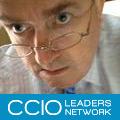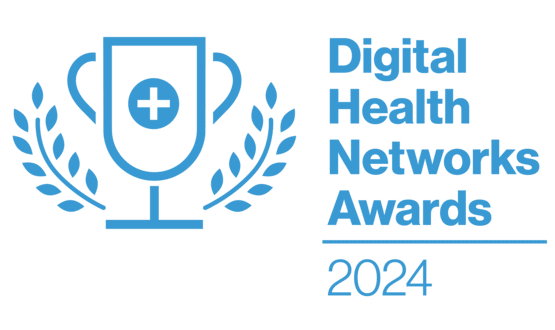Joe’s view of telehealth
- 23 March 2015

Regular readers will know that this time of year will usually find me in the high Alps, skiing with friends and family.
This year is no different; except that we have a couple of the usual suspects missing. My daughter, Emily, after studying modern languages for four years and then spending six months doing voluntary work in an orphanage in India, has decided to become a doctor.
So she is busy doing interviews for medicine as a post graduate student. During her time in India, we kept in touch through Skype video calls and her photographs posted on Facebook.
I was frequently impressed by the quality of the video calls and sometimes she sent me photographs of skin lesions of the children in the orphanage, asking what treatment they needed. Naturally, I enlisted the support of relevant specialists. Telehealth. I became a fan of Skype.
The world’s first teleplumbing consultation
My youngest son, Jake is also applying to do medicine. As he’s just 18 years’ old, we were a little nervous about leaving him at home this close to his A levels.
Emily had an infamous house party the first time we left her home alone. We had received a call from a neighbor tipping us off about a riotous party taking place in our house while we were away visiting friends in Manchester.
We decided to let the party run its course rather than rush back. The following morning we returned to the suspiciously tidy house and played dumb. Although we couldn’t resist making remarks like: “What a lot of cigarette ends in the garden” and: “Blimey, who put all these bottles in the bin?”
Eventually, she cracked. “I had a party, it was terrible, they just kept coming, there was nothing I could do so I got blind drunk.”
So when my phone rang in Verbier I felt acertain trepidation. It was Jake on the line, but the crisis was not party related. “Dad, I’ve got not no heating or hot water. It’s freezing”.
My mind flashed to a Ferrari-driving plumber I know, and the potential cost of calling out an emergency plumber at the weekend.
Still, what sort of parent leaves their own son studying for A levels, unwashed in a freezing cold house? Clearly, if he fails to get into medical school it will be my fault.
I decide to bridge the two by taking a long shot. What if the problem is something that lies within my tiny knowledge of plumbing?
I attempt to talk Jake through the resetting of the boiler on the phone. I am trying to describe the knobs and buttons on the underside of the boiler to Jake when it dawns on me. I have broadband at home and in the chalet. “Jake, video call me on your mobile.”
Five minutes later, I have Skype-viewed the underside of the boiler, seen that there is no pressure in the system and – using Golden Shot style “up a bit, left a bit, down a bit” instructions – have re-pressurised the system and restarted the boiler.
Jake is impressed. SuperDad rides again. I have invented teleplumbing.
The NHS needs to go online. It needs to use commercial tech to do it.
Later that evening, with the log fire crackling in the grate, and the moonlight glistening on the snow on the balcony, Armagnac in hand, I contemplate the establishment of an online NHS Mental Health Clinic.
By bedtime I have, in my head, transformed the NHS into a 24/7 always on, multi-channel, modern, patient focused service.
Key to my plan will be borrowing existing infrastructure built by others, rather than having to build special NHS-only systems with super secret information governance.
“Ah,” I hear some say “but how secure is Skype?” and “Not everyone has access to Skype, so it wouldn’t be fair.” Well, these objections can just as easily be applied to second class post and telephone calls, but they never are.
When researching this piece, I discovered that Skype is already in use by a CQC approved private online medical practice, DrThom, and they claim a 98% satisfaction rate and to have had over 350,000 customers.
As the financial squeeze on the NHS intensifies, we are unlikely to be able to afford bespoke Military –intelligence-Secure, weapons-grade, closed circuit video calling facilities to do online consultations. So why not take a leaf out of the Netflix playbook and build NHS online consultation on somebody else’s infrastructure – namely Skype and FaceTime.
The question of whether the IG arrangements (servers outside the EU and so on and so forth) are adequate is easily overcome by a grown-up conversation with the patient about whether or not they are happy to risk their consultation being eavesdropped by the CIA.
I’m guessing that the vast majority would be comfortable with it. After all, most people are happy with their confidential information being shared through the deeply insecure medium of second class post. Although, again, we never actually ask them about this.
Time for trust
Psychiatry, and particularly my own specialty of adolescent psychiatry, will lend itself well to online consultation. Many of my patients have a horror of bumping into a schoolmate in the waiting room of a mental health clinic, or of being spotted going in. Typically, 25% fail to attend for a first appointment.
Standing on the balcony of the chalet, looking at the lights of the village in the valley below, twinkling in the ice-crystal-cold night air, a name for this brand of psychiatric practice comes to me. “Skypiatry.”
Buoyed by my plumbing triumph I decide to become the world’s first Skypiartist. I rush indoors to the computer intent on buying the domain name but unfortunately someone has beaten me to it.
If we are to make the radical savings that NHS England chief executive Simon Stevens says the NHS needs to, we are going to have to mimic other industries and virtualise those services we can, with patients doing more self care and consulting on line.
Why not have an NHS Trust established to develop online health services. Saint Skype’s.


Joe McDonald
Joe McDonald is a practising NHS consultant psychiatrist. Over the past five years he has been an NHS trust medical director and national clinical lead for IT at NHS Connecting for Health – a stint that included 18 months as medical director of the Lorenzo delivery team!
His experiences in the National Programme for IT in the NHS have left him with a passion for usability and "end user knowledge networks.” He is the founding chairman of the National Mental Health Informatics Network. Motto: we don't get fooled again. Follow him on twitter @CompareSoftware




